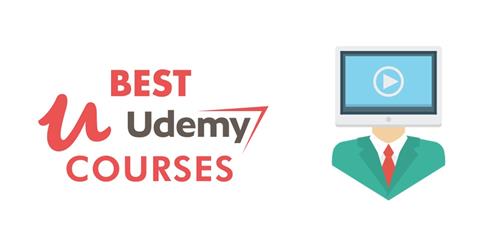
Free Download Beyond Coding Game Dev's Business Product Management Guide
Published 3/2024
Created by Tiffany 'SpringxHare' Murrill, SPX eSports
MP4 | Video: h264, 1280x720 | Audio: AAC, 44.1 KHz, 2 Ch
Genre: eLearning | Language: English | Duration: 29 Lectures ( 2h 14m ) | Size: 2.81 GB
Strategic Planning, Competitor Analysis, Idea Generation, Roadmapping and Agile Methods for Game Development Success
What you'll learn:
Master product management fundamentals in the gaming industry for innovation and user engagement.
Align game development with market trends and player demands for successful product strategies.
Analyze roles and strategies behind blockbuster games by Blizzard and Riot Games for inspiration.
Leverage cross-functional collaboration techniques to enhance game design and market positioning.
Adopt agile methodologies to respond to evolving player behaviors and technology in game management.
Navigate the shift from physical to digital platforms, maximizing game distribution and updates.
Implement games as a service (GaaS) models for continuous engagement and revenue growth.
Analyze the growth of the gaming industry from arcade machines to VR, highlighting key technological advancements.
Explore the diverse gaming platforms (PC, console, mobile) and their impact on global market dynamics.
Understand the roles of major industry players, including game developers,
Examine the influence of streaming platforms on gaming culture and community engagement.
Identify the segmentation of the gaming market, including mobile, console, and PC gaming, and their revenue models.
Predict future trends, focusing on cloud gaming, AR/VR, and emerging business models in the gaming industry.
Assess the cultural and social trends shaping gaming, including eSports and streaming culture.
Navigate the ethical and regulatory considerations in gaming, including data privacy and loot box controversies.
Understand esports' evolution from niche hobby to a major competitive gaming phenomenon influencing global gaming trends.
Analyze how competitive gaming has shaped game development, emphasizing balance and spectator-friendly features.
Explore the role of streaming platforms like Twitch in fostering engaged esports communities and fan interaction.
Investigate the impact of esports on live events, highlighting the growth in sponsorships and prize pools.
Discover how esports has transformed audience engagement, creating active communities and new viewing experiences.
Assess the economic influence of esports on the gaming industry, including advertising and sponsorship opportunities.
Predict future trends in esports and competitive gaming, considering technological advancements and community growth.
Analyze diverse gamer demographics, including age, gender, ethnicity, and how these factors influence gaming habits.
Examine the shift in gender balance within gaming and its impact on game development and marketing strategies.
Understand the global diversity of the gaming community and how cultural backgrounds shape gaming preferences.
Explore socioeconomic factors affecting gaming accessibility and participation across different income groups.
Investigate geographical influences on gaming trends and infrastructure availability in various regions.
Identify popular game genres among different gamer demographics and how preferences vary across platforms.
Assess how gaming habits, like play frequency and session length, vary and impact game design and engagement strategies.
Delve into motivations behind gaming, including intrinsic and extrinsic factors, and their implications for game development.
Examine common legal disputes in gaming, including intellectual property and licensing agreements.
Understand the impact of online gaming platforms on legal issues like jurisdiction and cross-border transactions.
Explore legal challenges related to in-game economies, virtual currencies, and user-generated content.
Analyze the intersection of gaming with privacy law, data protection, and cybersecurity threats.
Grasp the role of regulatory compliance in game development, from age ratings to content restrictions.
Learn how legal considerations influence marketing strategies and comply with advertising regulations.
Identify strategies for navigating distribution agreements and storefront policies for optimal product visibility.
Implement proactive content moderation and user safety measures to align with community standards and legal requirements.
Master conducting market research tailored to the gaming sector, identifying target market segments and key demographics.
Analyze market trends, emerging technologies, and their implications for game development and player engagement.
Develop skills in forecasting future market movements and demand to guide strategic game development.
Conduct player research to segment players based on behavior, preferences, and engagement levels.
Utilize surveys, gameplay data, and social listening to uncover player motivations, satisfaction, and feedback.
Translate player insights into actionable strategies, prioritizing pain points and brainstorming solutions.
Identify untapped market opportunities and white spaces to innovate and differentiate gaming products.
Integrate identified opportunities and insights into product development, aligning with market trends and player expectations.
Master competitor profiling to identify key competitors, their strategies, strengths, and weaknesses in the gaming industry.
Analyze competitors' game offerings, user interfaces, and technical performance to pinpoint market opportunities.
Understand competitors' pricing and monetization models to inform your game development and marketing strategies.
Evaluate competitors' marketing and user acquisition tactics to enhance your game's visibility and player base.
Assess the impact of competitors' partnerships and collaborations on market dynamics and identify strategic alliance opportunities.
Integrate competitor profiling insights into strategic planning to inform product development and competitive positioning.
Conduct ongoing competitive analysis to adapt to market changes and maintain a competitive edge in game development.
Develop a strategic foundation for game development by aligning with a compelling vision and clear business objectives.
Craft a vision statement that encapsulates the game's unique value and aligns with broader organizational goals.
Implement SWOT analysis to identify internal strengths and weaknesses, and external opportunities and threats.
Translate strategic insights from SWOT analysis into actionable strategies for game development and positioning.
Establish clear objectives and key results (OKRs) to guide product strategy and measure progress.
Integrate product goals with business objectives, ensuring strategic coherence and resource optimization.
Assess and allocate budget and resources effectively to support strategic product goals within the gaming industry.
Translate OKRs into SMART goals, with clear ownership and detailed action plans, to achieve strategic product objectives.
Understand the process of generating and diversifying game development ideas to create unique and valuable gaming experiences.
Apply structured methodologies like SCAMPER, Six Thinking Hats, and the Blue Ocean Strategy to broaden the scope of ideation.
Develop techniques for effective brainstorming and leveraging market insights to spark innovative game concepts.
Utilize customer feedback and trend analysis to inform the ideation process and ensure alignment with player preferences.
Master the evaluation of game ideas against strategic criteria to assess potential impact, feasibility, and strategic alignment.
Refine game concepts through prototyping, user stories, and feedback loops to enhance creativity and meet user expectations.
Prioritize game development ideas using frameworks like the Rice Scoring System and the MoSCoW Method to focus on high-impact projects.
Integrate prioritized game ideas into the product roadmap, ensuring a clear path from concept to implementation with adaptability to market changes.
Master strategic alignment to ensure game development plans are in sync with company vision and goals.
Utilize strategic criteria for evaluating and selecting game features that align with market needs and company objectives.
Implement effective documentation and communication strategies for game development roadmaps to all stakeholders.
Integrate user and market feedback into the product roadmap to ensure game relevance and market fit.
Employ responsive planning techniques to adapt game development strategies based on emerging trends and competitive insights.
Apply continuous improvement practices to refine the game development roadmap based on past project retrospectives and KPI analysis.
Balance short-term development needs with long-term strategic goals to maintain project relevance and vision.
Foster a culture of agility and flexibility in roadmapping to accommodate changes in gaming technology and player preferences.
Requirements:
If you're new to the field of game development or strategic planning, don't worry! This course is structured to start with the fundamentals and gradually build up to more complex concepts. We encourage beginners to bring their passion for games and a desire to learn, as these are the most crucial requirements.
This course is an excellent opportunity for anyone looking to dive into the world of game development with a strategic lens, whether you're a student, a hobbyist game developer, or a professional looking to shift into game production roles.
Description:
Plunge into the strategic core of game development with "Beyond Coding: Game Dev's Business & Product Management Guide." This course isn't just another programming tutorial; it's a comprehensive journey through the business, strategy, and management skills essential for turning your game development projects into successful market-ready products.Activate Your Strategic Genius:Strategic Planning: Align game projects with overarching business objectives for impactful contributions to success.Idea Generation: Harness structured brainstorming and innovative methods to generate and refine groundbreaking game concepts.Roadmapping & Agile Methods: Navigate through flexible product roadmapping and agile practices to swiftly adapt to market changes and team dynamics.Business Essentials: Acquire critical insights into market analysis, financial planning, and strategic marketing to navigate the gaming industry's competitive landscape.Competitive Analysis: Learn to evaluate your competition and position your game for success in a crowded market.Product Strategy and Planning: Develop a strategic approach to game development, ensuring your projects align with business goals and market needs.Idea Generation and Evaluation: Discover the art of generating innovative game ideas and the process of evaluating their market potential.Game Development Product Roadmapping: Craft a dynamic game development roadmap that guides your project from concept to market.Responsive Planning: Implement feedback and market analysis into your development process for a game that meets and exceeds player expectations.Continuous Improvement: Embrace a culture of iterative development and constant enhancement to stay ahead in the fast-paced gaming industry.Is This Course for You?Designed for game developers eager to expand beyond technical skills into strategic thinking, business acumen, and product management, this course is a comprehensive guide for those aiming to elevate their projects from just another game to a market-ready product. Whether you're an individual developer, part of a development team, or leading a studio, the insights and strategies presented will empower you to align your creative efforts with successful business outcomes.
Who this course is for:
This course is tailored for aspiring game developers and product managers with a keen interest in the gaming and esports industry. It's perfect for individuals who possess a basic understanding of game development processes and are looking to deepen their strategic and planning skills. This includes those who have a foundational knowledge of game mechanics, user experience design, and are familiar with the dynamics of the gaming market but wish to elevate their capabilities in product strategy, roadmap creation, and the incorporation of market and user feedback into game development. Ideal learners include
Early to mid-career game developers seeking to transition into product management roles within the gaming industry.
Product managers outside the gaming industry eager to understand the unique challenges and opportunities in game development.
Game design students and recent graduates aiming to augment their design and development skills with strategic planning and market analysis expertise.
Indie game developers looking to refine their approach to game conceptualization, development, and market positioning.
Esports enthusiasts and professionals aiming to develop or improve gaming products tailored to competitive gaming communities.
This course is designed to bridge the gap between creative game development and strategic product management, making it a valuable asset for anyone looking to make impactful decisions in the gaming and esports sectors.
Homepage
Recommend Download Link Hight Speed | Please Say Thanks Keep Topic Live
No Password - Links are Interchangeable









